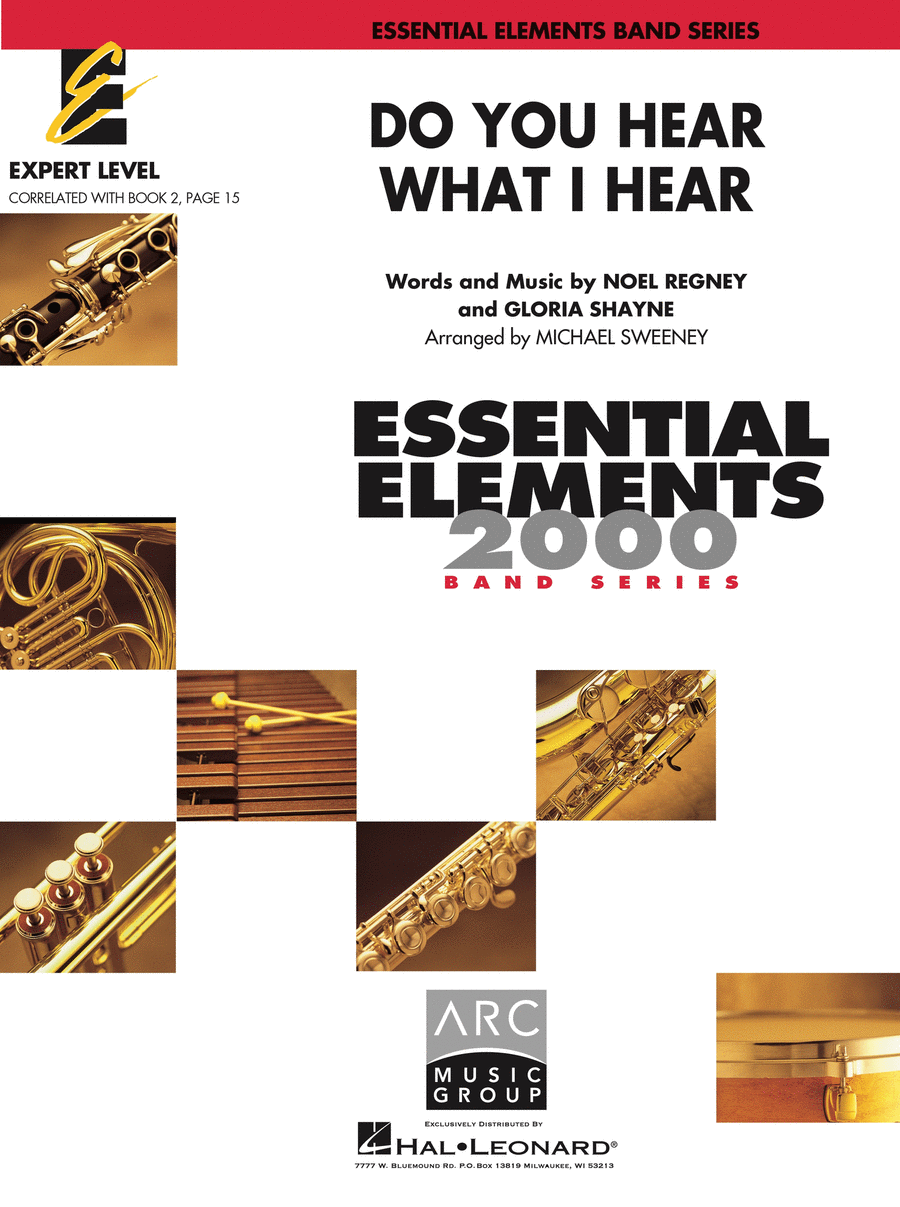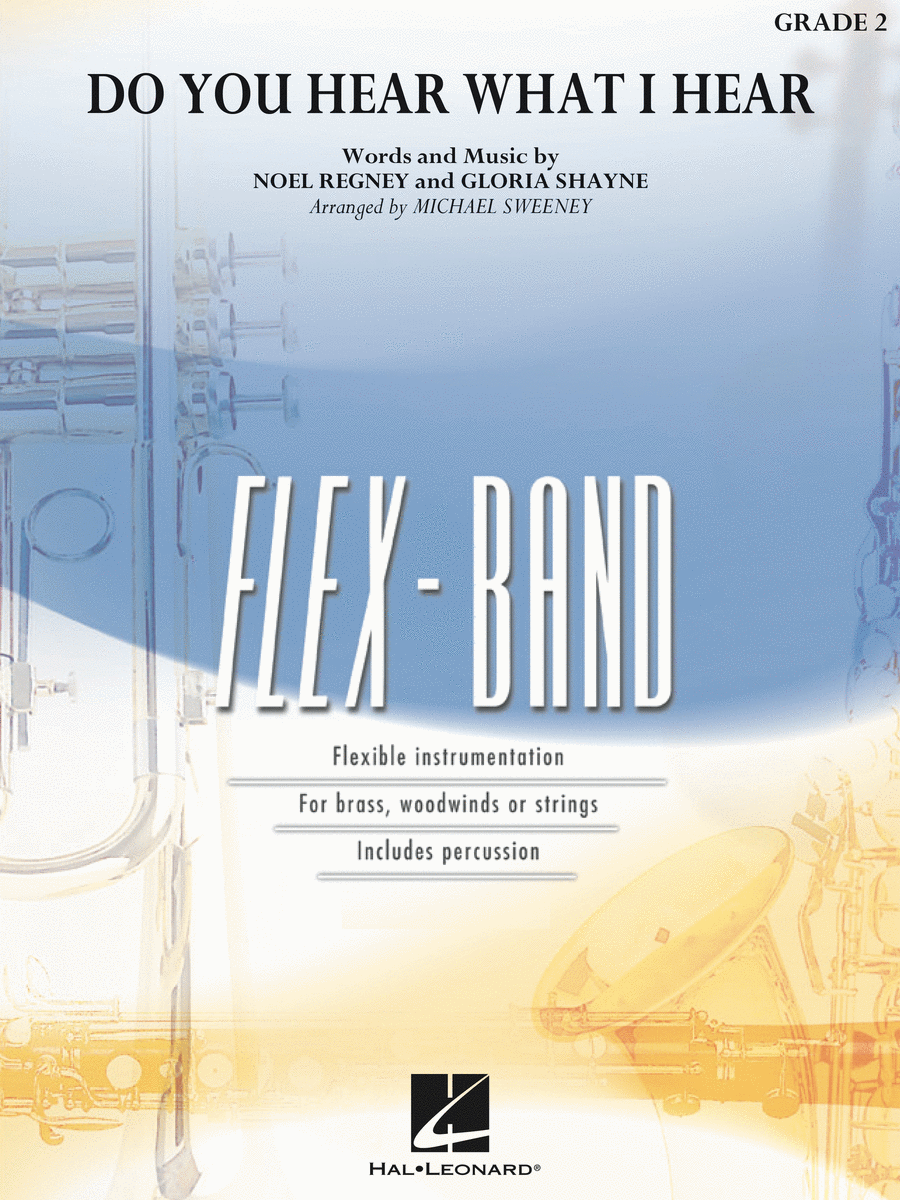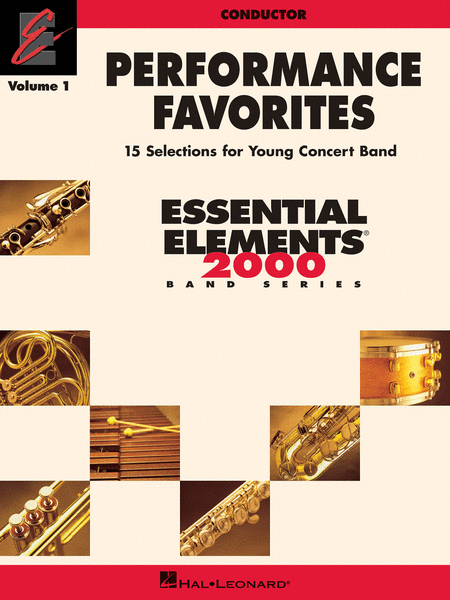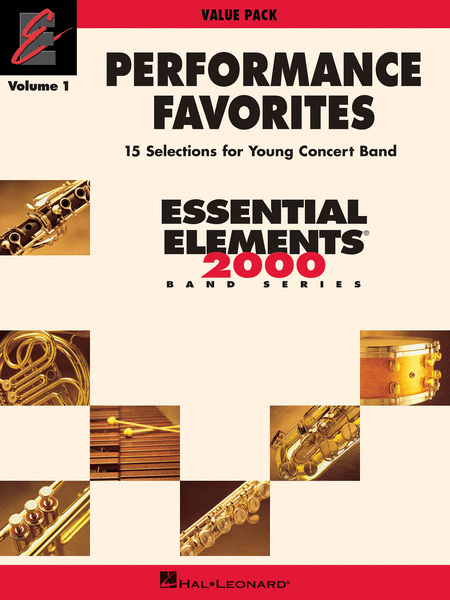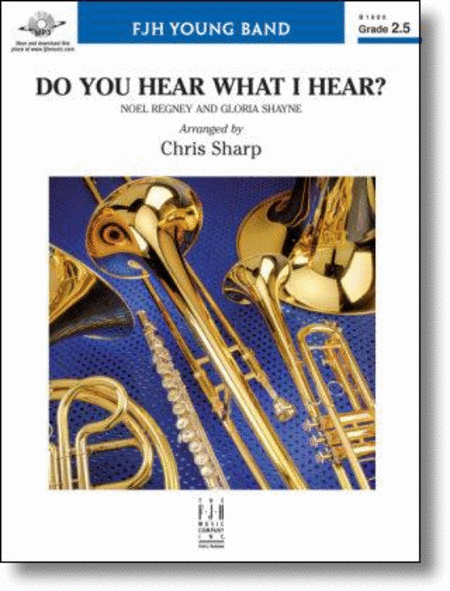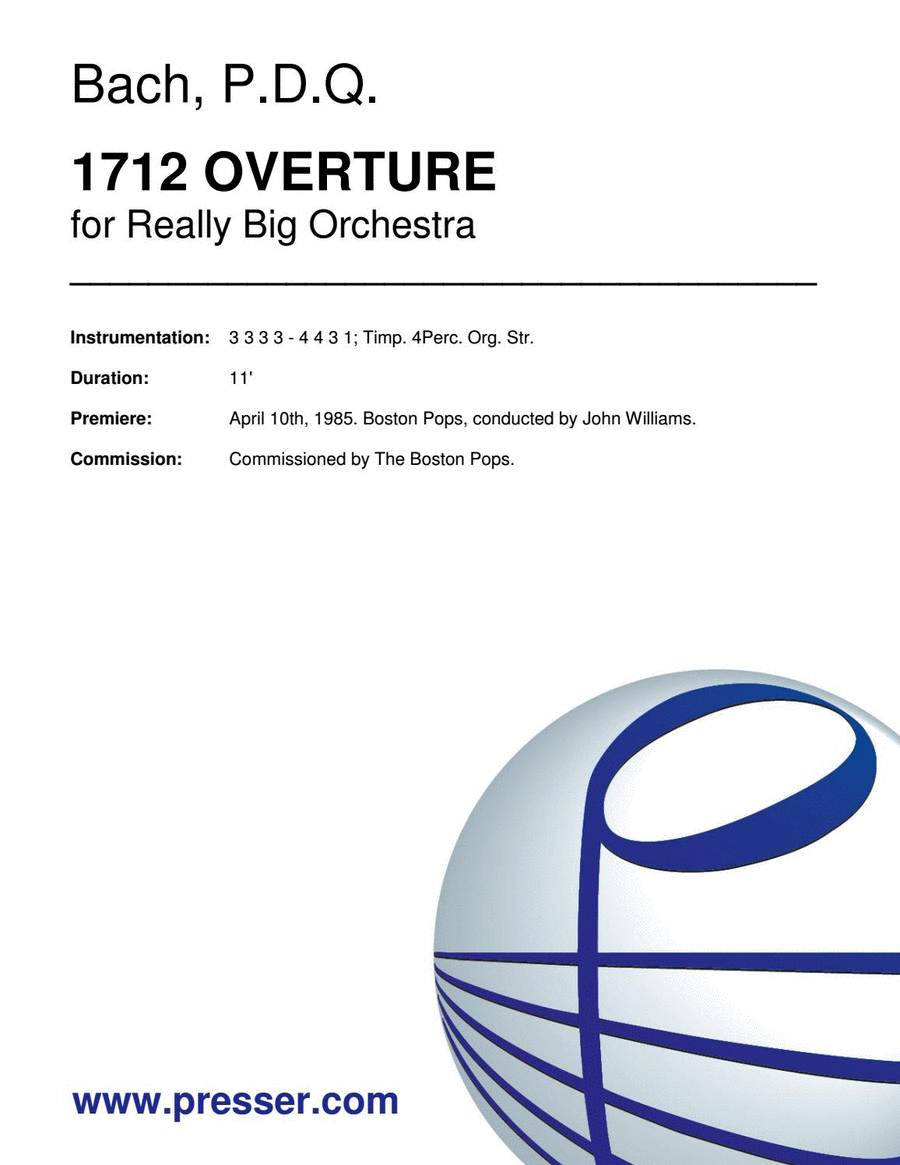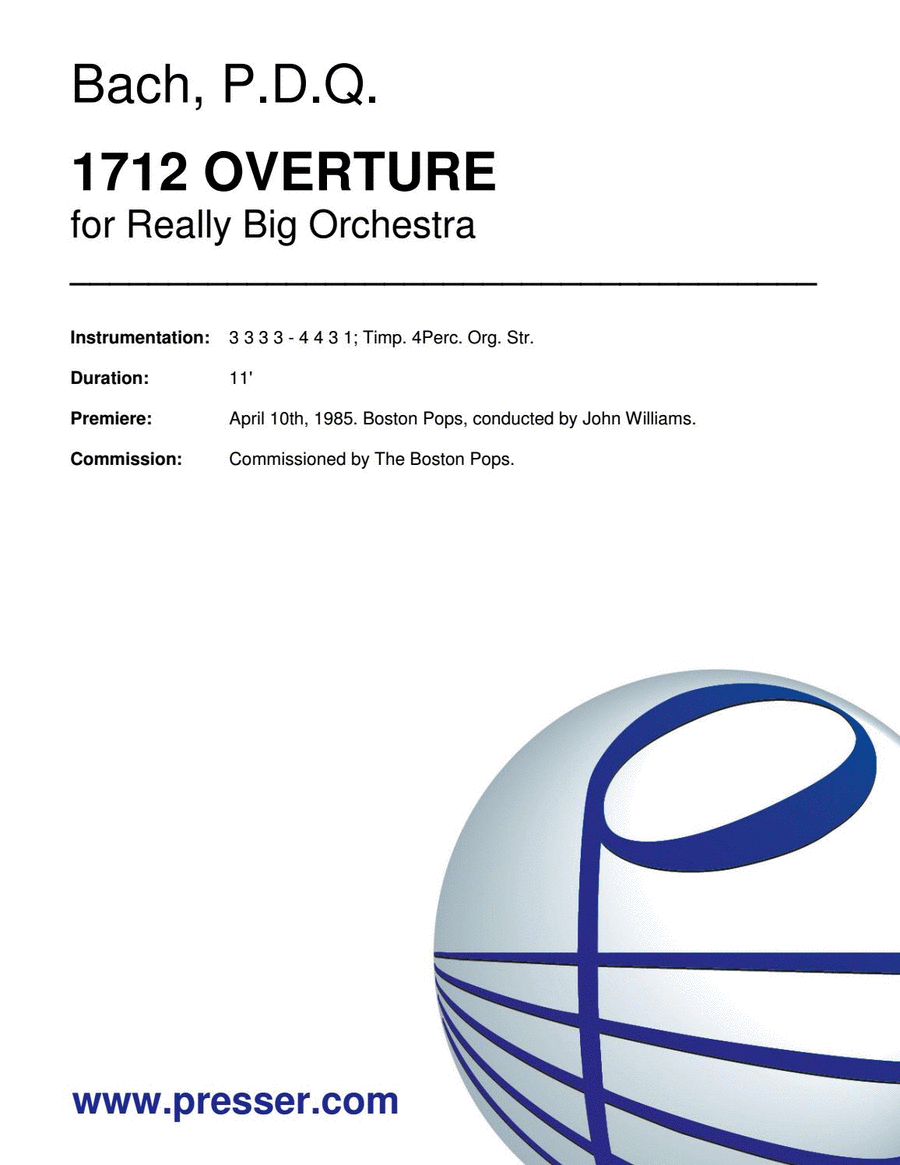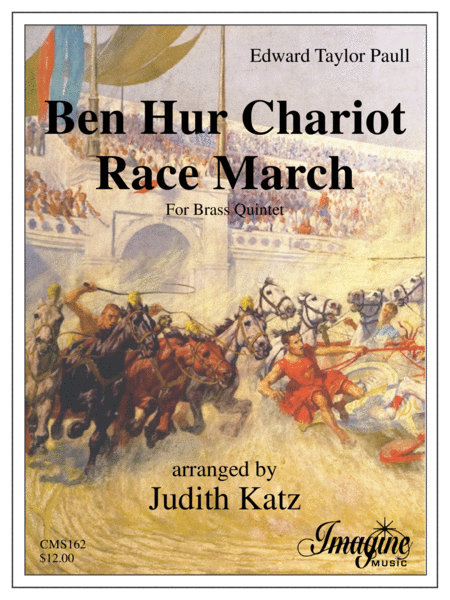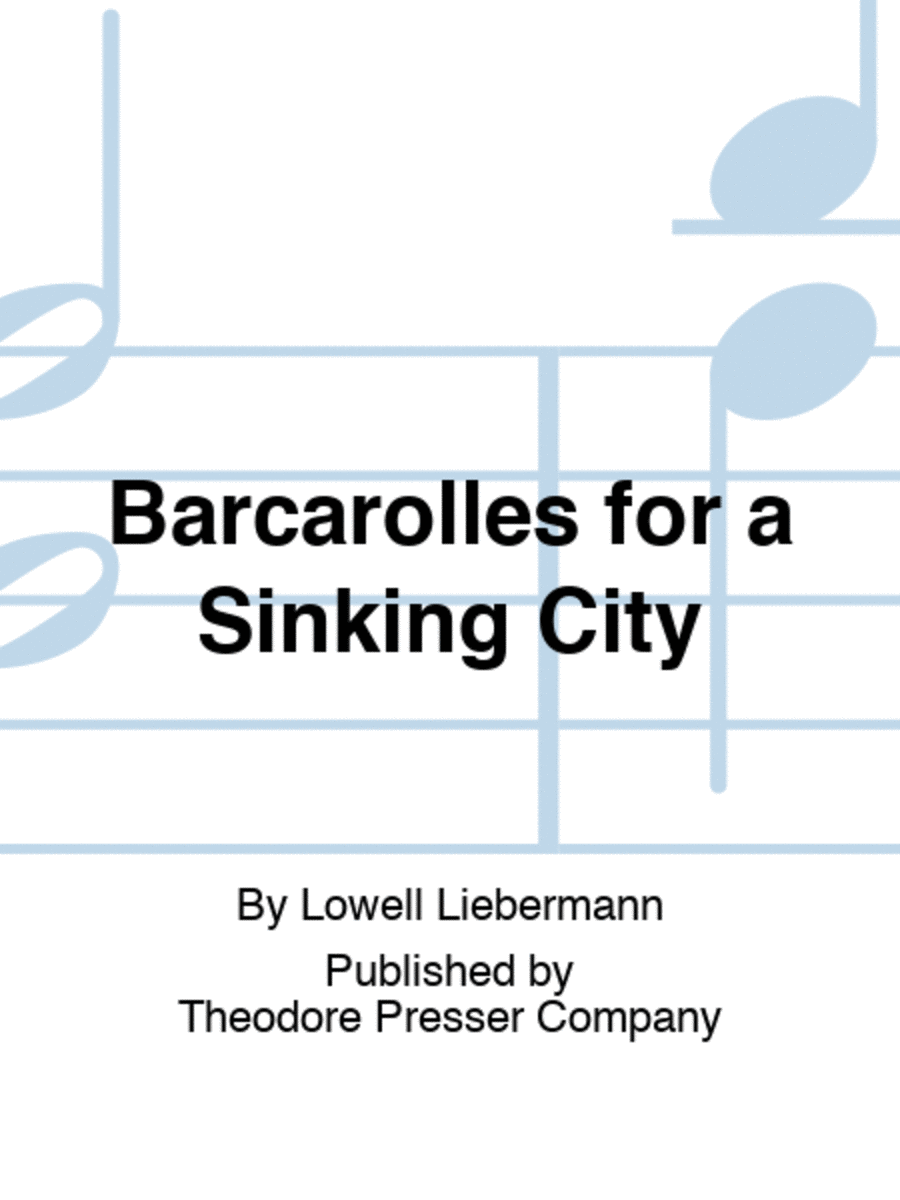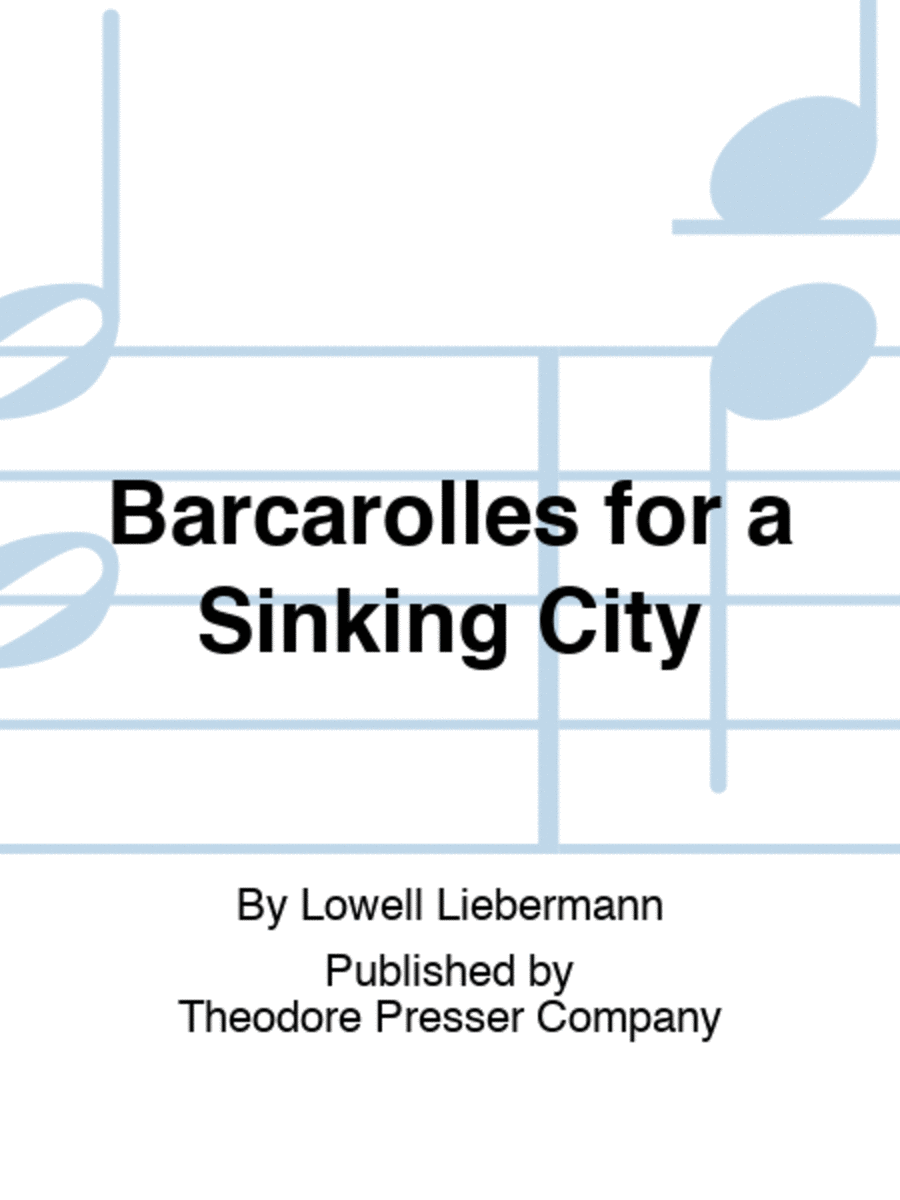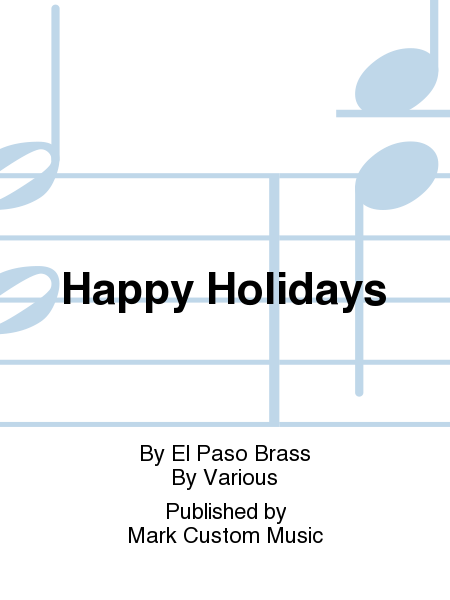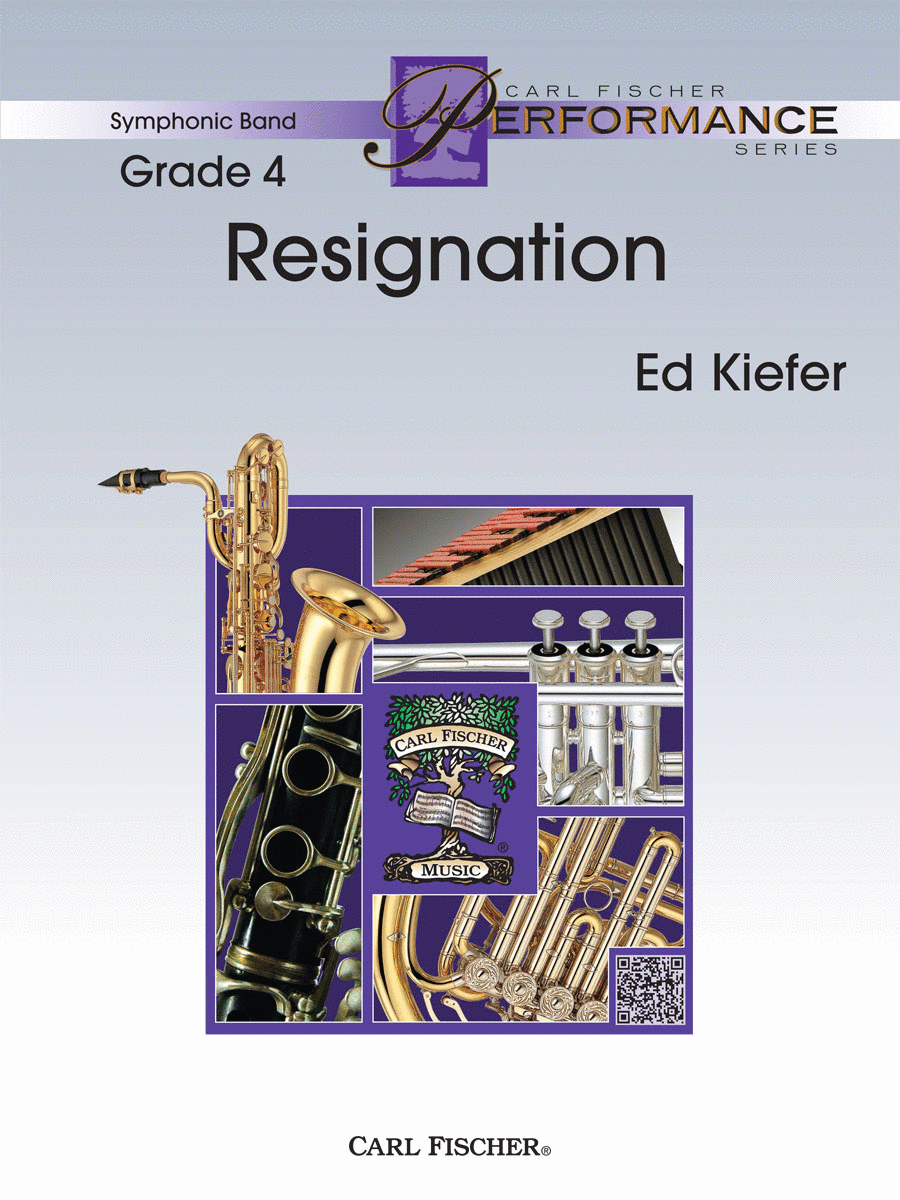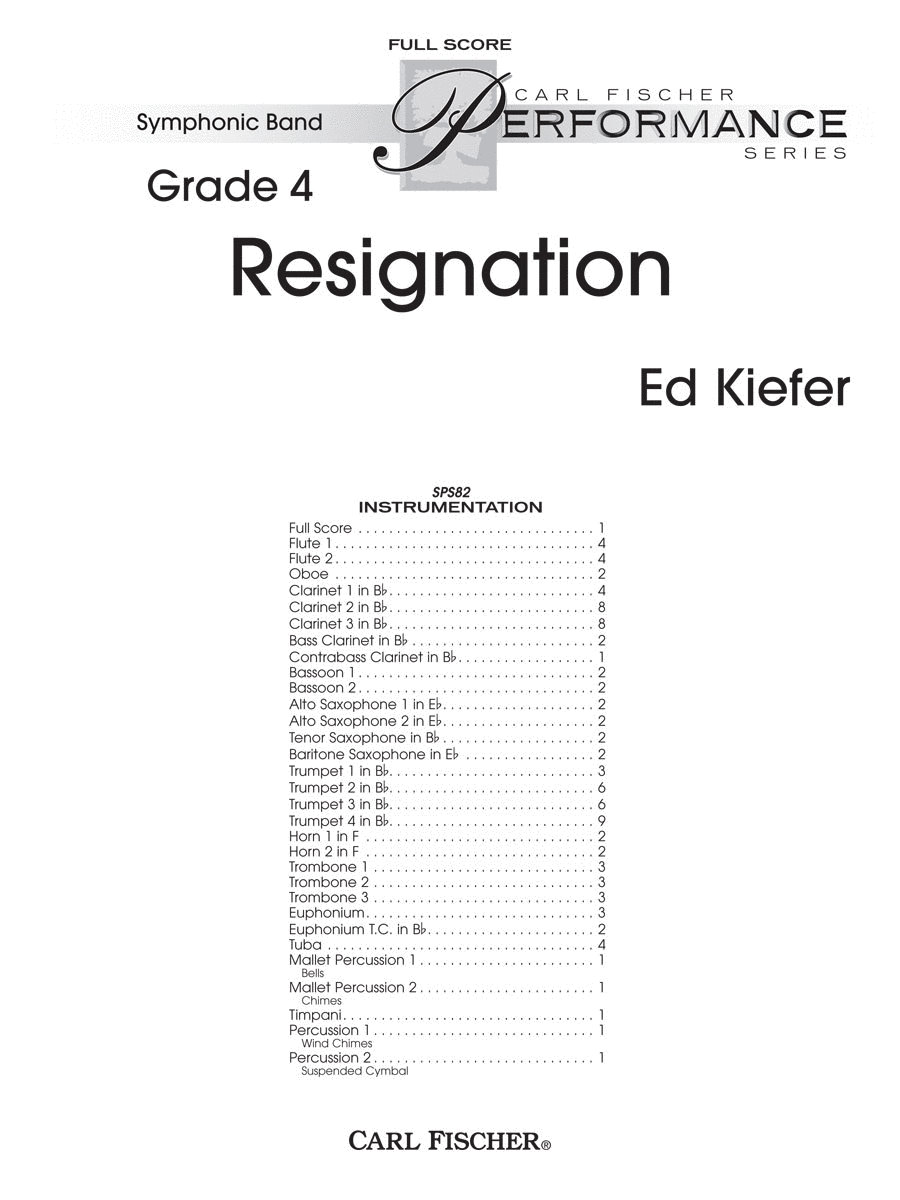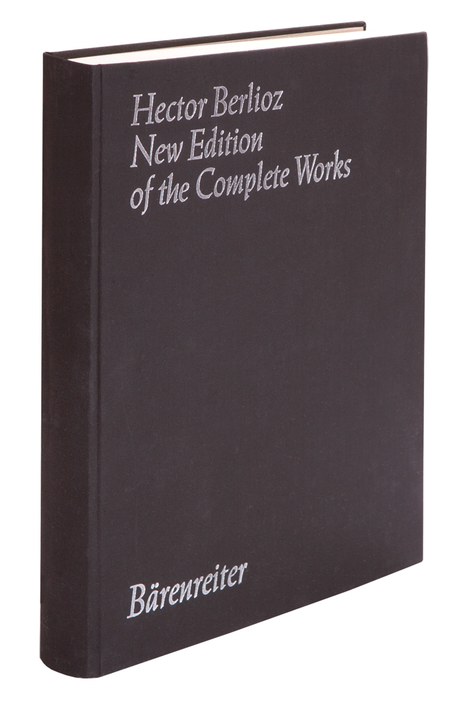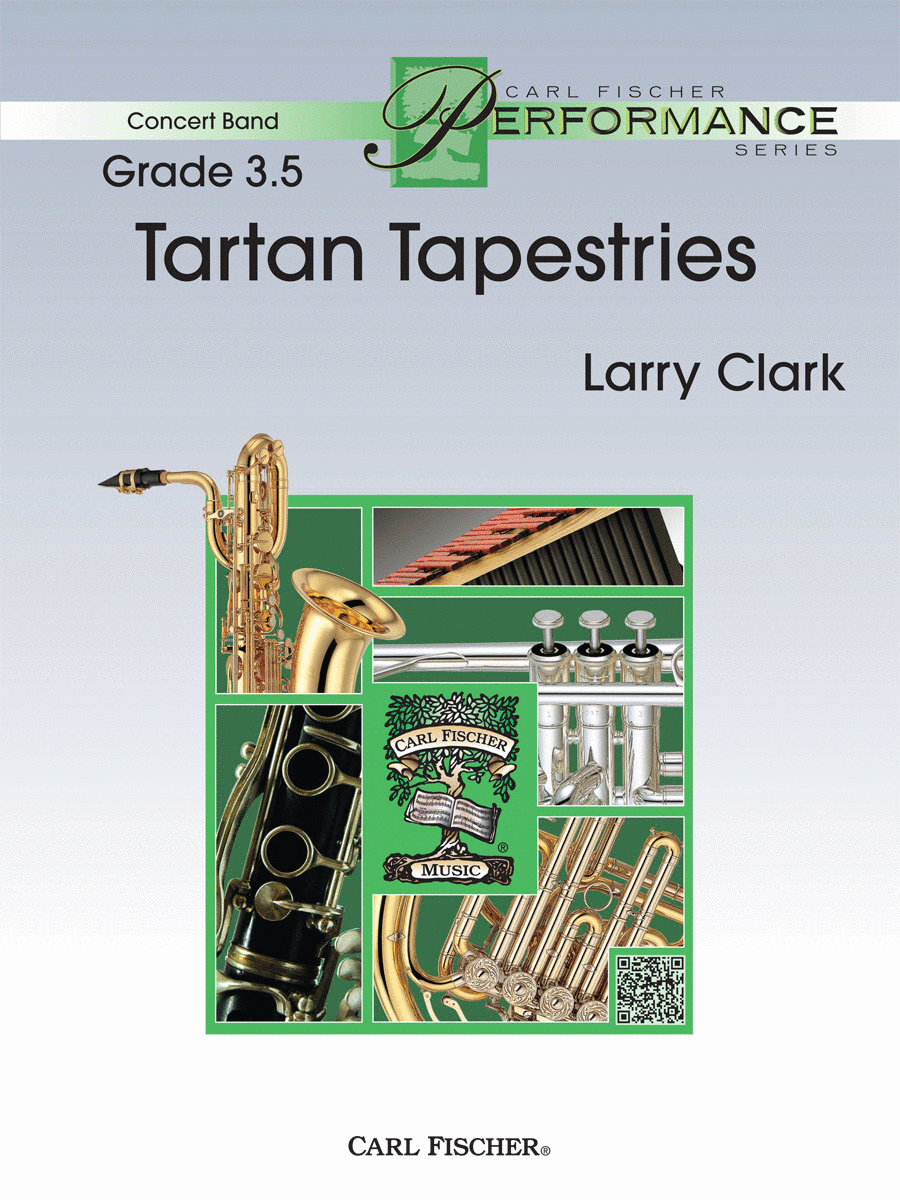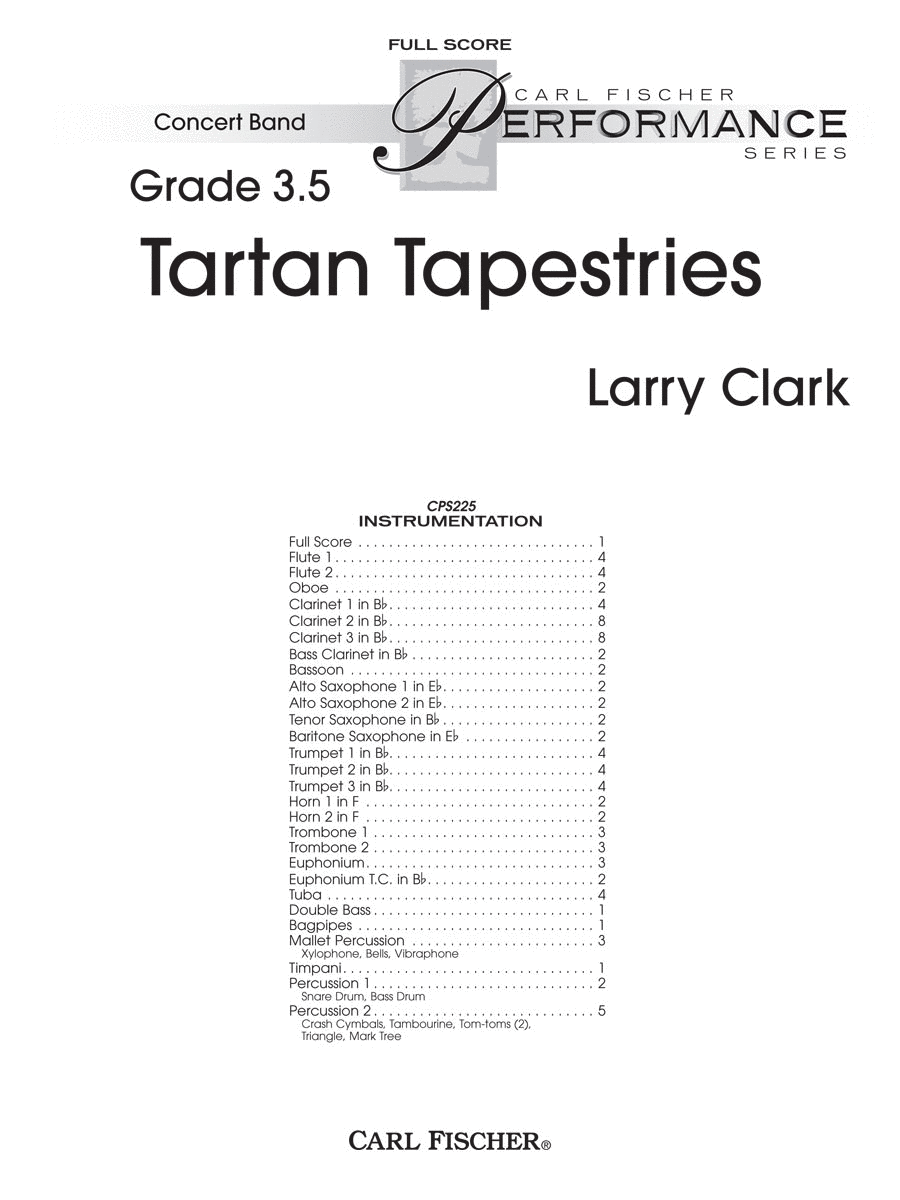|
| Do You Hear What I Hear
Orchestre d'harmonie [Partition] - Facile
Hal Leonard
By Gloria Smith, Noel Regney. Arranged by Michael Sweeney. Essential Elements - ...(+)
By Gloria Smith, Noel
Regney. Arranged by
Michael Sweeney.
Essential Elements -
Concert Band, Expert
Level (Grade 2). Score
and full set of parts.
Published by Hal Leonard.
$60.00 - Voir plus => AcheterDélais: 24 hours - In Stock | | | |
| Do You Hear What I Hear
Orchestre d'harmonie [Conducteur et Parties séparées] - Facile
Hal Leonard
Composed by Noel Regney and Gloria Shayne. Arranged by Michael Sweeney. Flex-B...(+)
Composed by Noel Regney
and
Gloria Shayne. Arranged
by
Michael Sweeney.
Flex-Band
Grade 2. Christmas,
Christmas
Sacred, Christmas/Advent
Sacred. Softcover.
Published
by Hal Leonard
$60.00 - Voir plus => AcheterDélais: 24 hours - In Stock | | | |
| Performance Favorites - Volume 1
Hal Leonard
Correlates with Book 2 of the Essential Elements 2000 Band Method. Arranged by J...(+)
Correlates with Book 2 of
the Essential Elements
2000 Band Method.
Arranged by James Curnow,
John Moss, John Higgins,
Paul Lavender, Michael
Sweeney. (Score).
Essential Elements Band
Folios. 196 pages.
Published by Hal Leonard.
$24.99 - Voir plus => AcheterDélais: 24 hours - In Stock | | | |
| Performance Favorites, Volume 1
Orchestre - Facile
Hal Leonard
((Value Pak - 37 Part Books/Conductor/CD)). Kit of score and part books. Essenti...(+)
((Value Pak - 37 Part
Books/Conductor/CD)). Kit
of score and part books.
Essential Elements Band
Folios. Grade 2
$289.99 - Voir plus => AcheterDélais: 24 hours - In Stock | | | |
| Do You Hear What I Hear?
Orchestre d'harmonie [Conducteur et Parties séparées] - Facile
FJH
Composed by Gloria Shayne Baker. Arranged by Chris Sharp. For concert band. FJH ...(+)
Composed by Gloria Shayne
Baker. Arranged by Chris
Sharp. For concert band.
FJH Young Band. Grade
2.5. Score and parts.
Duration 2 minutes, 30
seconds. Published by The
FJH Music Company Inc
$55.00 - Voir plus => AcheterDélais: 24 hours - In Stock | | | |
| 1712 Overture
Orchestre
Theodore Presser Co.
Orchestra SKU: PR.416415760 For Really Big Orchestra. Composed by ...(+)
Orchestra SKU:
PR.416415760 For
Really Big Orchestra.
Composed by PDQ Bach.
Edited by Prof. Peter
Schickele. Study Score.
With Standard notation.
Duration 11 minutes.
Theodore Presser Company
#416-41576. Published by
Theodore Presser Company
(PR.416415760). UPC:
680160636532. 9 x 12
inches. The 1712
Overture stands out in
P.D.Q. Bach's oeuvre for
two reasons, among
others: it is by far the
most programmatic
instrumental piece among
those by the minimeister
of Wein-am-Rhein so far
unearthed, and 2) its
discovery has led to a
revelation about the
composer's father, Johann
Sebastian Bach, that has
exploded like a bombshell
on the usually serene
musicological landscape.
The overture is based on
an anecdote told to
P.D.Q. Bach by a cousin,
Peter Ulrich. Since P.U.
Bach lived in Dudeldorf,
only a few miles down the
road from Wein-am-Rhein,
he was P.D.Q.'s closest
relative, and he was, in
fact, one of the few
members of the family who
was on speaking terms
with P.D.Q. The story,
related to P.D.Q.
(fortunately for us
posterity types) in a
letter, may be summarized
thus: The town of
Dudeldorf was founded by
two brothers, Rudi and
Dieter Dudel, early in
the 18th century. Rudi
remained mayor of the
newborn burg for the rest
of his long life, but
Dieter had a dream of
starting a musicians'
colony, an entire city
devoted to music, which
dream, he finally
decided, could be
realized only in the New
World. In 1712, he and
several other bagpipers
sailed to Boston, never
to return to Germany.
(Henceforth, Rudi became
known as der deutscher
Dudel and Dieter as the
Yankee Dudel).
Unfortunately, the head
of the Boston Musicians'
Guild had gotten wind of
Dudel's plans, and
Wilhelm Wiesel (pron.
VEE-zle), known none too
affectionately around
town as Wiesel the
Weasel, was not about to
share what few gigs there
were in colonial America
with more foreigners and
outside agitators. He and
his cronies were on hand
to meet Dudel's boat when
it pulled into Boston
Harbor; they intended to
prevent the newcomers'
disembarkation, but Dudel
and his companions
managed to escape to the
other side of the bay in
a dinghy, landing with
just enough time to rent
a carriage and horses
before hearing the sound
of The Weasel and his
men, who had had to come
around the long way. The
Germans headed West, with
the Bostonians in furious
pursuit. soon the city
had been left far behind,
and by midnight so had
the pursuers; Dieter
Dudel decided that it was
safe for him and his men
to stop and sleep until
daybreak. When they
awoke, they found that
they were in a beautiful
landscape of low,
forested mountains and
pleasant fields, warmed
by the brilliant morning
sun and serenaded by an
entrancing variety of
birds. Here, Dudel
thought, her is where I
will build my colony. The
immigrants continued down
the road at a leisurely
pace until they came upon
a little church, all by
itself in the
countryside, from which
there suddenly emanated
the sounds of a pipe
organ. At this point, the
temptation to quote from
P.U. Bach's letter to
P.D.Q. cannot be
resisted: They went
inside and, after
listening to the glorious
music for a while,
introduced themselves to
the organist. And who do
you think it was? Are you
ready for this -- it was
your old man! Hey, no
kidding -- you know, I'm
sure, that your father
was the guy to get when
it came to testing new
organs, and whoever had
that one in Massachusetts
built offered old
Sebastian a tidy sum to
go over there and check
it out. The unexpected
meeting with J.S. Bach
and his sponsors was
interrupted by the sound
of horse hooves, as the
dreaded Wiesel and his
men thundered on to the
scene. They had been
riding all night,
however, and they were no
spring chickens to start
with, and as soon as they
reached the church they
all dropped, exhausted,
to the ground. The elated
Germans rang the church
bells and offered to buy
everyone a beer at the
nearest tavern. There
they were taught, and
joined in singing, what
might be called the
national anthem of the
New World. The melody of
this pre-revolutionary
patriotic song is still
remembered (P.D.Q. Bach
quotes it, in the bass
instruments, near the end
of the overture), but is
words are now all but
forgotten: Freedom, of
thee we sing, Freedom
e'er is our goal; Death
to the English King, Long
live Rock and Ross. The
striking paucity of
biographical references
to Johann Sebastian Bah
during the year 1712 can
now be explained: he was
abroad for a significant
part of that year,
testing organs in the
British Colonies. That
this revelation has not
been accepted as fact by
the musicological
establishment is no
surprise, since it means
that a lot of books would
have to be rewritten. The
members of that
establishment haven't
even accepted the
existence of P.D.Q. Bach,
one of whose major works
the 1712 Overture
certainly is. It is also
a work that shows
Tchaikowsky up as the
shameless plagiarizer
that some of us have
always known he was. The
discovery of this awesome
opus was made possible by
a Boston Pops Centennial
Research Commission; the
first modern performance
took place at the opening
concert of the 100th
anniversary season of
that orchestra, under the
exciting but authentic
direction of John
Williams. $39.99 - Voir plus => AcheterDélais: 2 to 3 weeks | | | |
| 1712 Overture
Orchestre
Theodore Presser Co.
Orchestra SKU: PR.41641576L For Really Big Orchestra. Composed by ...(+)
Orchestra SKU:
PR.41641576L For
Really Big Orchestra.
Composed by PDQ Bach.
Edited by Peter
Schickele. Large Score.
With Standard notation.
Duration 11 minutes.
Theodore Presser Company
#416-41576L. Published by
Theodore Presser Company
(PR.41641576L). UPC:
680160636549. 11 x 17
inches. The 1712
Overture stands out in
P.D.Q. Bach's oeuvre for
two reasons, among
others: it is by far the
most programmatic
instrumental piece among
those by the minimeister
of Wein-am-Rhein so far
unearthed, and 2) its
discovery has led to a
revelation about the
composer's father, Johann
Sebastian Bach, that has
exploded like a bombshell
on the usually serene
musicological landscape.
The overture is based on
an anecdote told to
P.D.Q. Bach by a cousin,
Peter Ulrich. Since P.U.
Bach lived in Dudeldorf,
only a few miles down the
road from Wein-am-Rhein,
he was P.D.Q.'s closest
relative, and he was, in
fact, one of the few
members of the family who
was on speaking terms
with P.D.Q. The story,
related to P.D.Q.
(fortunately for us
posterity types) in a
letter, may be summarized
thus: The town of
Dudeldorf was founded by
two brothers, Rudi and
Dieter Dudel, early in
the 18th century. Rudi
remained mayor of the
newborn burg for the rest
of his long life, but
Dieter had a dream of
starting a musicians'
colony, an entire city
devoted to music, which
dream, he finally
decided, could be
realized only in the New
World. In 1712, he and
several other bagpipers
sailed to Boston, never
to return to Germany.
(Henceforth, Rudi became
known as der deutscher
Dudel and Dieter as the
Yankee Dudel).
Unfortunately, the head
of the Boston Musicians'
Guild had gotten wind of
Dudel's plans, and
Wilhelm Wiesel (pron.
VEE-zle), known none too
affectionately around
town as Wiesel the
Weasel, was not about to
share what few gigs there
were in colonial America
with more foreigners and
outside agitators. He and
his cronies were on hand
to meet Dudel's boat when
it pulled into Boston
Harbor; they intended to
prevent the newcomers'
disembarkation, but Dudel
and his companions
managed to escape to the
other side of the bay in
a dinghy, landing with
just enough time to rent
a carriage and horses
before hearing the sound
of The Weasel and his
men, who had had to come
around the long way. The
Germans headed West, with
the Bostonians in furious
pursuit. soon the city
had been left far behind,
and by midnight so had
the pursuers; Dieter
Dudel decided that it was
safe for him and his men
to stop and sleep until
daybreak. When they
awoke, they found that
they were in a beautiful
landscape of low,
forested mountains and
pleasant fields, warmed
by the brilliant morning
sun and serenaded by an
entrancing variety of
birds. Here, Dudel
thought, her is where I
will build my colony. The
immigrants continued down
the road at a leisurely
pace until they came upon
a little church, all by
itself in the
countryside, from which
there suddenly emanated
the sounds of a pipe
organ. At this point, the
temptation to quote from
P.U. Bach's letter to
P.D.Q. cannot be
resisted: They went
inside and, after
listening to the glorious
music for a while,
introduced themselves to
the organist. And who do
you think it was? Are you
ready for this -- it was
your old man! Hey, no
kidding -- you know, I'm
sure, that your father
was the guy to get when
it came to testing new
organs, and whoever had
that one in Massachusetts
built offered old
Sebastian a tidy sum to
go over there and check
it out. The unexpected
meeting with J.S. Bach
and his sponsors was
interrupted by the sound
of horse hooves, as the
dreaded Wiesel and his
men thundered on to the
scene. They had been
riding all night,
however, and they were no
spring chickens to start
with, and as soon as they
reached the church they
all dropped, exhausted,
to the ground. The elated
Germans rang the church
bells and offered to buy
everyone a beer at the
nearest tavern. There
they were taught, and
joined in singing, what
might be called the
national anthem of the
New World. The melody of
this pre-revolutionary
patriotic song is still
remembered (P.D.Q. Bach
quotes it, in the bass
instruments, near the end
of the overture), but is
words are now all but
forgotten: Freedom, of
thee we sing, Freedom
e'er is our goal; Death
to the English King, Long
live Rock and Ross. The
striking paucity of
biographical references
to Johann Sebastian Bah
during the year 1712 can
now be explained: he was
abroad for a significant
part of that year,
testing organs in the
British Colonies. That
this revelation has not
been accepted as fact by
the musicological
establishment is no
surprise, since it means
that a lot of books would
have to be rewritten. The
members of that
establishment haven't
even accepted the
existence of P.D.Q. Bach,
one of whose major works
the 1712 Overture
certainly is. It is also
a work that shows
Tchaikowsky up as the
shameless plagiarizer
that some of us have
always known he was. The
discovery of this awesome
opus was made possible by
a Boston Pops Centennial
Research Commission; the
first modern performance
took place at the opening
concert of the 100th
anniversary season of
that orchestra, under the
exciting but authentic
direction of John
Williams. $80.00 - Voir plus => AcheterDélais: 2 to 3 weeks | | | |
| Ben Hur Chariot Race March
Quintette de Cuivres: 2 trompettes, Cor, trombone, tuba
Imagine Music
Composed by Edward Taylor Paull. Arranged by Judith Katz. Published by Imagine M...(+)
Composed by Edward Taylor
Paull. Arranged by Judith
Katz. Published by
Imagine Music
(IG.CMS164).
$12.00 - Voir plus => AcheterDélais: 4 to 6 weeks | | | |
| Barcarolles for a Sinking City [Conducteur]
Theodore Presser Co.
Orchestra Bass Clarinet, Bassoon 1, Bassoon 2, Clarinet 1, Clarinet 2, Contrabas...(+)
Orchestra Bass Clarinet,
Bassoon 1, Bassoon 2,
Clarinet 1, Clarinet 2,
Contrabass,
Contrabassoon, English
Horn, Flute 1, Flute 2,
Harp, Horn 1, Horn 2,
Horn 3, Horn 4, Oboe 1,
Oboe 2, Percussion 1,
Percussion 2, Percussion
3, Percussion 4, Piccolo
and more. SKU:
PR.11641139S Composed
by Lowell Liebermann.
Full score. Duration 15
minutes. Theodore Presser
Company #116-41139S.
Published by Theodore
Presser Company
(PR.11641139S). UPC:
680160682119. Barca
rolles for a Sinking City
was inspired by the city
of Venice, a place that
has long held the
fascination of artists,
writers and composers,
and which I have been
lucky enough to visit on
several occasions. Sadly
it seems that future
generations may not be so
lucky: in addition to the
city's slow sinking and
recently discovered
tilting, studies predict
that if global warming
and the resultant rise of
ocean levels is unabated,
the entire city (as well
as many other coastal
cities around the globe)
will be under water by
2100. I. Funeral
Gondola The late, cryptic
piano works of Franz
Liszt made a profound
impression on me as a
young composer, among
them two works he
entitled La Lugubre
Gondola (usually
translated as The Funeral
Gondola ) which were said
to be a premonition of
Wagner's death in Venice,
his coffin transported
through the canals in a
black gondola. These late
pieces of Liszt acquired
even greater significance
to me after I spent two
summers in Bayreuth under
the patronage of
Friedelind Wagner, the
granddaughter of Wagner
and great-granddaughter
of Liszt. This movement
is a meditation on
Wagner, Liszt, Venice and
its own evanescence. II.
Barcarolle/Quodlibet The
Quodlibet (Latin for what
pleases) is a musical
form dating back to the
15th century where many
disparate melodies are
juxtaposed. Popular in
the Renaissance, sacred
and secular melodies were
combined, often to
comical effect due to the
resultant incongruity of
the words. The form was
considered the ultimate
test of a composer's
mastery of counterpoint.
The most famous Quodlibet
is without doubt the
final Variation of Bach's
Goldberg Variations. As a
form the Quodlibet is
less common in more
recent music, although
examples can be found in
the works of Kurt Weill
and David Del Tredici.
My own
Barcarolle/Quodlibet was
inspired by the (perhaps
apocryphal) story of the
funeral where musicians
were asked to play a Bach
Choral, but due to
miscommunication played
instead the Bacarolle
from The Tales of
Hoffmann. Here, the Bach
Choral Allen Menschen
mussen sterben (All Men
Must Die) is heard in the
strings pizzicato, with a
tempo indication In slow
motion. The alto line of
the Bach suggests a
phrase from Beethoven's
Ninth Symphony (Alle
Menchen werden Bruder)
heard in the muted
trombone. Before long,
the famous tune from
Offenbach's opera is
heard, followed by
quotations from iconic
Barcarolles by Chopin,
Mendelssohn and Faure, as
well as two Venetian
popular songs and more
Beethoven. III.
Barcarola/Ostinato/Carill
on An ostinato is a
repeated musical figure,
and carillon is Italian
for music box. This
movement references the
obsolete genre of salon
pieces that imitated
music boxes: such works
by composers like Liadov
and Gretchaninov used to
be a mainstay of
pianists' encore
repertoire. This movement
is however much darker in
conception than those
pleasant trifles.
Utilizing the full
battery of percussion,
the carefully notated
temporal slowing of the
ostinato becomes
overwhelmed by a poignant
chorale melody before
this box is snapped shut.
IV. Barcarolle
Oubliee (Forgotten
Barcarolle) Marked
limpido (still) the final
movement begins with the
sound of rain produced by
a percussion instrument
called (appropriately) a
rain stick. Halting
phrases in the harp
coalesce into the
accompaniment for a
plangent melody heard in
the clarinet. The central
Adagio of this movement
leads to a shattering
climax, before the
opening phrases return
and dissipate into
nothingness. $48.99 - Voir plus => AcheterDélais: 2 to 3 weeks | | | |
| Barcarolles for a Sinking City
Theodore Presser Co.
Orchestra Bass Clarinet, Bassoon 1, Bassoon 2, Clarinet 1, Clarinet 2, Contrabas...(+)
Orchestra Bass Clarinet,
Bassoon 1, Bassoon 2,
Clarinet 1, Clarinet 2,
Contrabass,
Contrabassoon, English
Horn, Flute 1, Flute 2,
Harp, Horn 1, Horn 2,
Horn 3, Horn 4, Oboe 1,
Oboe 2, Percussion 1,
Percussion 2, Percussion
3, Percussion 4, Piccolo
and more. SKU:
PR.11641139L Composed
by Lowell Liebermann.
Large Score. Duration 15
minutes. Theodore Presser
Company #116-41139L.
Published by Theodore
Presser Company
(PR.11641139L). UPC:
680160682126. Barca
rolles for a Sinking City
was inspired by the city
of Venice, a place that
has long held the
fascination of artists,
writers and composers,
and which I have been
lucky enough to visit on
several occasions. Sadly
it seems that future
generations may not be so
lucky: in addition to the
city's slow sinking and
recently discovered
tilting, studies predict
that if global warming
and the resultant rise of
ocean levels is unabated,
the entire city (as well
as many other coastal
cities around the globe)
will be under water by
2100. I. Funeral
Gondola The late, cryptic
piano works of Franz
Liszt made a profound
impression on me as a
young composer, among
them two works he
entitled La Lugubre
Gondola (usually
translated as The Funeral
Gondola ) which were said
to be a premonition of
Wagner's death in Venice,
his coffin transported
through the canals in a
black gondola. These late
pieces of Liszt acquired
even greater significance
to me after I spent two
summers in Bayreuth under
the patronage of
Friedelind Wagner, the
granddaughter of Wagner
and great-granddaughter
of Liszt. This movement
is a meditation on
Wagner, Liszt, Venice and
its own evanescence. II.
Barcarolle/Quodlibet The
Quodlibet (Latin for what
pleases) is a musical
form dating back to the
15th century where many
disparate melodies are
juxtaposed. Popular in
the Renaissance, sacred
and secular melodies were
combined, often to
comical effect due to the
resultant incongruity of
the words. The form was
considered the ultimate
test of a composer's
mastery of counterpoint.
The most famous Quodlibet
is without doubt the
final Variation of Bach's
Goldberg Variations. As a
form the Quodlibet is
less common in more
recent music, although
examples can be found in
the works of Kurt Weill
and David Del Tredici.
My own
Barcarolle/Quodlibet was
inspired by the (perhaps
apocryphal) story of the
funeral where musicians
were asked to play a Bach
Choral, but due to
miscommunication played
instead the Bacarolle
from The Tales of
Hoffmann. Here, the Bach
Choral Allen Menschen
mussen sterben (All Men
Must Die) is heard in the
strings pizzicato, with a
tempo indication In slow
motion. The alto line of
the Bach suggests a
phrase from Beethoven's
Ninth Symphony (Alle
Menchen werden Bruder)
heard in the muted
trombone. Before long,
the famous tune from
Offenbach's opera is
heard, followed by
quotations from iconic
Barcarolles by Chopin,
Mendelssohn and Faure, as
well as two Venetian
popular songs and more
Beethoven. III.
Barcarola/Ostinato/Carill
on An ostinato is a
repeated musical figure,
and carillon is Italian
for music box. This
movement references the
obsolete genre of salon
pieces that imitated
music boxes: such works
by composers like Liadov
and Gretchaninov used to
be a mainstay of
pianists' encore
repertoire. This movement
is however much darker in
conception than those
pleasant trifles.
Utilizing the full
battery of percussion,
the carefully notated
temporal slowing of the
ostinato becomes
overwhelmed by a poignant
chorale melody before
this box is snapped shut.
IV. Barcarolle
Oubliee (Forgotten
Barcarolle) Marked
limpido (still) the final
movement begins with the
sound of rain produced by
a percussion instrument
called (appropriately) a
rain stick. Halting
phrases in the harp
coalesce into the
accompaniment for a
plangent melody heard in
the clarinet. The central
Adagio of this movement
leads to a shattering
climax, before the
opening phrases return
and dissipate into
nothingness. $90.00 - Voir plus => AcheterDélais: 2 to 3 weeks | | | |
| Happy Holidays
Quintette de Cuivres: 2 trompettes, Cor, trombone, tuba
Mark Custom Music
By El Paso Brass. By Various. Mark Records. Classical. Audio CD. Duration 54:47....(+)
By El Paso Brass. By
Various. Mark Records.
Classical. Audio CD.
Duration 54:47. Published
by Mark Custom Music
(MK.2572-MCD).
$15.00 - Voir plus => AcheterDélais: 4 to 6 weeks | | | |
| Resignation
Orchestre d'harmonie - Intermédiaire
Carl Fischer
Band Bass Clarinet, Bassoon 1, Bassoon 2, Bells, Chimes, Clarinet 1, Clarinet 2,...(+)
Band Bass Clarinet,
Bassoon 1, Bassoon 2,
Bells, Chimes, Clarinet
1, Clarinet 2, Clarinet
3, Contrabass Clarinet,
Euphonium, Euphonium
T.C., Flute 1, Flute 2,
Horn 1, Horn 2, Mallet
Percussion 1, Mallet
Percussion 2, Oboe,
Percussion 1, Percussion
2 and more. - Grade 4
SKU: CF.SPS82
Composed by Ed Kiefer.
Symphonic Band (SPS). Set
of Score and Parts. With
Standard notation.
4+4+2+4+8+8+2+1+2+2+2+2+2
+2+3+6+6+9+2+2+3+3+3+3+4+
1+1+1+1+1+16+2 pages.
Duration 2 minutes, 58
seconds. Carl Fischer
Music #SPS82. Published
by Carl Fischer Music
(CF.SPS82). ISBN
9781491152591. UPC:
680160910090. Key: Bb
major. Resignation�
� was composed in
memory of one of Ed
Kiefer's best friends.
Evoking the struggle of
coming to grips with the
loss of a dear friend,
the piece is based on the
hymn, My Shepherd Will
Supply My Need. It is
dramatic, heartfelt, and
overwhelmingly beautiful.
As Hans Christian
Andersen once said, When
words fail, music
speaks..
Dr. David S.
Kirby Commission
Consortium Phillip Riggs,
Commission
CoordinatorNorthwest
District Bandmasters
AssociationRodney
Workman, Past-Chair
Andrew Jimeson,
ChairWestern North
Carolina Bandmasters
AssociationAllen Klaes,
ChairNorth Carolina
School of Science and
MathPhillip Riggs,
DirectorA.C. Reynolds
High School BandSean
Smith, DirectorSouth
Caldwell High School
BandJason Childers,
DirectorJay M. Robinson
Symphonic BandAndrew
Carter, DirectorApex High
School BandDaniel Jarvis,
DirectorPanther Creek
High School BandDavid
Robinson, DirectorEastern
Randolph High School
BandCarolina Perez,
DirectorStanley County
Concert Band/Pfeiffer
University Concert
BandCarmella Hedrick, Tim
Hedrick and Frank Poolos,
DirectorsLenoir Rhyne
University Wind
SymphonyDr. Daniel Kiser,
ConductorDr. Christopher
NegrelliNumerous
colleagues, fellow
teachers, and former
studentsProgram
NotesThere is no possible
way I could compose a
piece of music worthy of
the memory of my close
friend, Dr. David Kirby,
who died very suddenly at
an early age. Neither
could I write a piece
that could come close to
reflecting his kind
spirit, wit, personality
or talent. In fact, it
was almost impossible for
me to write anything at
all. My own grief and the
stages of my
grief kept getting in
the way. I ended up with
a setting of the
hymn-tune, Resignation.
Resigned. To the fact
that he is no longer
with us. I know he is
in a better place, but we
are not. We miss him very
much. And so, My Shepherd
Will Supply My Need seems
to speak to those of us
he left behind. I
apologize if this piece
does not reflect your
special feelings for him
or help you celebrate his
moving on. Unfortunately,
I could only put down
what I have come to
accept and hope in some
way it may speak to any
of you that knew him or
to others of you who have
also lost a close friend.
My Shepherd Will Supply
My Need. That is my
hope and my hope for
you.Although technically
very easy, this
composition requires a
maturity of musicianship
to be performed properly.
The Bb contrabass
clarinet part is integral
to the composition, but
there are cues in the
tuba part if you need
them. Â Make sure you
bring horns to the fore
at m. 53 and the low
brass at m. 59 so the
melody can be heard
without effort.
Exaggerate dynamics to
bring more emotion to the
piece. Be careful not to
diminuendo too soon near
the end or it will be
difficult to diminish
even further at the very
end, where the lone
clarinetist holds over a
couple of measures,
fading into nothing. I
hope your students will
enjoy this piece and take
from it a greater
appreciation for the way
making music can express
feelings. $110.00 - Voir plus => AcheterDélais: 24 hours - In Stock | | | |
| Resignation
Orchestre d'harmonie [Conducteur] - Intermédiaire
Carl Fischer
Band Bass Clarinet, Bassoon 1, Bassoon 2, Bells, Chimes, Clarinet 1, Clarinet 2,...(+)
Band Bass Clarinet,
Bassoon 1, Bassoon 2,
Bells, Chimes, Clarinet
1, Clarinet 2, Clarinet
3, Contrabass Clarinet,
Euphonium, Euphonium
T.C., Flute 1, Flute 2,
Horn 1, Horn 2, Mallet
Percussion 1, Mallet
Percussion 2, Oboe,
Percussion 1, Percussion
2 and more. - Grade 4
SKU: CF.SPS82F
Composed by Ed Kiefer.
Symphonic Band (SPS).
Full score. With Standard
notation. 16 pages. Carl
Fischer Music #SPS82F.
Published by Carl Fischer
Music (CF.SPS82F).
ISBN 9781491153277.
UPC:
680160910779. Resig
nation was
composed in memory of
one of Ed Kiefer's best
friends. Evoking the
struggle of coming to
grips with the loss of a
dear friend, the piece is
based on the hymn, My
Shepherd Will Supply My
Need. It is dramatic,
heartfelt, and
overwhelmingly beautiful.
As Hans Christian
Andersen once said, When
words fail, music
speaks..
Dr. David S.
Kirby Commission
Consortium Phillip Riggs,
Commission
CoordinatorNorthwest
District Bandmasters
AssociationRodney
Workman, Past-Chair
Andrew Jimeson,
ChairWestern North
Carolina Bandmasters
AssociationAllen Klaes,
ChairNorth Carolina
School of Science and
MathPhillip Riggs,
DirectorA.C. Reynolds
High School BandSean
Smith, DirectorSouth
Caldwell High School
BandJason Childers,
DirectorJay M. Robinson
Symphonic BandAndrew
Carter, DirectorApex High
School BandDaniel Jarvis,
DirectorPanther Creek
High School BandDavid
Robinson, DirectorEastern
Randolph High School
BandCarolina Perez,
DirectorStanley County
Concert Band/Pfeiffer
University Concert
BandCarmella Hedrick, Tim
Hedrick and Frank Poolos,
DirectorsLenoir Rhyne
University Wind
SymphonyDr. Daniel Kiser,
ConductorDr. Christopher
NegrelliNumerous
colleagues, fellow
teachers, and former
studentsProgram
NotesThere is no possible
way I could compose a
piece of music worthy of
the memory of my close
friend, Dr. David Kirby,
who died very suddenly at
an early age. Neither
could I write a piece
that could come close to
reflecting his kind
spirit, wit, personality
or talent. In fact, it
was almost impossible for
me to write anything at
all. My own grief and the
stages of my
grief kept getting in
the way. I ended up with
a setting of the
hymn-tune, Resignation.
Resigned. To the fact
that he is no longer
with us. I know he is
in a better place, but we
are not. We miss him very
much. And so, My Shepherd
Will Supply My Need seems
to speak to those of us
he left behind. I
apologize if this piece
does not reflect your
special feelings for him
or help you celebrate his
moving on. Unfortunately,
I could only put down
what I have come to
accept and hope in some
way it may speak to any
of you that knew him or
to others of you who have
also lost a close friend.
My Shepherd Will Supply
My Need. That is my
hope and my hope for
you.Although technically
very easy, this
composition requires a
maturity of musicianship
to be performed properly.
The Bb contrabass
clarinet part is integral
to the composition, but
there are cues in the
tuba part if you need
them. Â Make sure you
bring horns to the fore
at m. 53 and the low
brass at m. 59 so the
melody can be heard
without effort.
Exaggerate dynamics to
bring more emotion to the
piece. Be careful not to
diminuendo too soon near
the end or it will be
difficult to diminish
even further at the very
end, where the lone
clarinetist holds over a
couple of measures,
fading into nothing. I
hope your students will
enjoy this piece and take
from it a greater
appreciation for the way
making music can express
feelings. $13.00 - Voir plus => AcheterDélais: 1 to 2 weeks | | | |
| Lelio (Le retour a la vie) Hol. 55
Barenreiter
2 solo tenor voice, solo baritone voice, speaker, Mixed choir: SSTTBB, orchestra...(+)
2 solo tenor voice, solo
baritone voice, speaker,
Mixed choir: SSTTBB,
orchestra (Tenor solo
(2), Baritone solo,
Speaker, Mixed choir:
SSTTBB, Orchestra)
SKU: BA.BA05447
Lyric monodrama in six
parts. Composed by
Hector Berlioz. Edited by
Peter Bloom. This
edition: complete
edition, urtext edition.
Linen. New Berlioz
Edition (Neue
Berlioz-Ausgabe - NBE)
Volume 7. Complete
edition, anthology. Hol.
55. Baerenreiter Verlag
#BA05447_00. Published by
Baerenreiter Verlag
(BA.BA05447). ISBN
9790006471461. 33.1 x 26
cm inches. Text Language:
French. Translation:
Gerard de Nerval. Hector
Berlioz. Llio was
composed during Berlioz's
stay in Italy in 1831. In
April of that year he set
out from Rome, where he
held a scholarship as
winner of the Prix de
Rome, and travelled as
far as Nice on hearing
that his fiancee Camille
Moke had rejected him in
favour of another suitor.
He had intended to return
to Paris to exact
revenge, but then he
abandoned his plan and
instead spent three weeks
in Nice, returning in
stages to Rome. On this
return journey he
conceived the idea of a
semi-theatrical work that
combined music and
monologues to express the
idea of returning to life
after a profound
traumatic experience.
The composition
was finished in Rome in
Iune 1831. In the spring
of 1832, while staying
with his parents in
Dauphin, Berlioz copied
the orchestral and vocal
parts, and the work was
first performed in
conjunction with the
Symphonie fantastique at
the Paris Conservatoire
on 9 December 1832. It
was heard again three
weeks later and again on
3 May 1835.
While
designated as the second
part of the Episode in
the Life of an Artist,
Lelio can never- theless
be performed on its own,
without the Symphonie
fantastique to precede
it. About
Barenreiter
Urtext
What can I
expect from a Barenreiter
Urtext
edition?<
/p> MUSICOLOGICA
LLY SOUND
- A
reliable musical text
based on all available
sources
- A
description of the
sources
-
Information on the
genesis and history of
the work
- Valuable
notes on performance
practice
- Includes
an introduction with
critical commentary
explaining source
discrepancies and
editorial decisions
... AND
PRACTICAL
-
Page-turns, fold-out
pages, and cues where you
need them
- A
well-presented layout and
a user-friendly
format
- Excellent
print quality
-
Superior paper and
binding

$363.95 - Voir plus => AcheterDélais: 1 to 2 weeks | | | |
| Tartan Tapestries
Orchestre d'harmonie - Intermédiaire
Carl Fischer
Band Bagpipes, Bass Clarinet, Bass Drum, Bassoon, Bells, Clarinet 1, Clarinet 2,...(+)
Band Bagpipes, Bass
Clarinet, Bass Drum,
Bassoon, Bells, Clarinet
1, Clarinet 2, Clarinet
3, Crash Cymbals, Double
Bass, Euphonium,
Euphonium T.C., Flute 1,
Flute 2, Horn 1, Horn 2,
Mallet Percussion, Mark
Tree, Oboe, Percussion 1,
Percussion 2 and more. -
Grade 3.5 SKU:
CF.CPS225 Composed by
Larry Clark. Concert Band
(CPS). Set of Score and
Parts. With Standard
notation.
12+12+6+12+24+24+6+4+6+6+
6+6+8+8+8+4+4+6+6+6+8+2+1
+6+2+4+10+32+4 pages.
Duration 6 minutes, 9
seconds. Carl Fischer
Music #CPS225. Published
by Carl Fischer Music
(CF.CPS225). ISBN
9781491152515. UPC:
680160910014. Tarta
n Tapestries is an
original piece that sets
out to emulate Scottish
folk music. Composer
Larry Clark has created a
concert overture in
triple meter to capture
the essence of music from
Scotland. After a lilting
first section, lush
and beautiful moments
weave a tapestry of
sounds with the lyrical,
middle section of the
piece. There is an
optional part for
bagpipes, and an optional
ending should you chose
to use this instrument as
part of the piece. Alert
your contest music
committee about this
strong new piece for
advancing
groups.
Tartan
Tapestries was
commissioned by Friends
of the Arts for the Saint
Andrew's School Band in
Boca Raton,
Florida. The band
program at Saint
Andrew’s School is
under the direction of
Andrea Wolgin. The
premiere took place on
November 29, 2017.When I
was asked by their
conductor Ms. Wolgin to
write a piece for the
Saint Andrew’s
School, I asked her what
kind of involvement she
wanted the students to
have in the process. We
discussed several options
for having the students
involved in the process
of creating with the type
of piece they wanted.Â
We set up a
“Skypeâ€
meeting with members of
the band to discuss the
piece. During this
discussion, the consensus
of the students was that
they wanted a piece
depicting the Scottish
influence to the
school. They also
wanted a piece that would
challenge all sections of
the band and to include
bagpipes if possible. I
asked that the students
be involved in helping to
name the piece once it
was completed, for which
they agreed and were very
helpful. Armed with
this information, I set
out to compose a piece
for them, and Tartan
Tapestries is the
result.The piece begins
with a fanfare gesture
based upon rhythms and
harmonies that appear
throughout the piece. I
chose the lilting triple
feel to the piece, to
bring about the Scottish
flavor. I wanted the
fanfare to be bardic
sounding, to depict the
strength of the Scottish
people and for the piece
to have a dynamic
opening. The fanfare
contains material that
alludes to the main theme
and with a bit of
dissonance and tension
that is resolved in the
main body of the
piece.The main theme is a
lilting original melody,
but one that I hope with
have the essence of
Scottish folk songs. The
main idea is followed by
a more modal and dark
sounding secondary theme,
first stated in the
horns. This material
is later used in the
development section of
the piece. The main
theme returns several
times, with different and
varied orchestrations and
harmonic treatments. This
is followed by a short
transition leading to the
more lyrical and slower
second section of the
piece. A transparent
presentation of the
lyrical theme, which is
based on aspects of the
main theme, is presented
first by a solo flute.
This section is a nod to
famous composer Malcom
Arnold’s wonderful
works for orchestra in
its style and
orchestration. After a
transition or bridge
section with a solo
euphonium, the piece
builds to a dramatic
climax of the lyrical
theme by the full band.
This subsides to a return
of the solo flute to end
this second section of
the piece, followed by a
transition back the main
theme.The solo bagpipes
play a central role in
the return of the main
theme and take center
stage after being heard
in the distance earlier
in the work. The piece
brings back a shortened
version of the darker
secondary theme, followed
by a hint of the fanfare
material that builds to
one last statement of the
main theme by the full
band, before leading to a
dramatic coda to complete
the work.It has been my
pleasure to have been
given the opportunity to
compose this piece for
the Saint Andrew’s
School Band! I thank
Andrea Wolgin for making
it happen, and I hope
that you enjoy it as much
as I have enjoyed
bringing the piece to
life.–Larry
ClarkLakeland, Florida
2017. $95.00 - Voir plus => AcheterDélais: 1 to 2 weeks | | | |
| Tartan Tapestries
Orchestre d'harmonie [Conducteur] - Intermédiaire
Carl Fischer
Band Bagpipes, Bass Clarinet, Bass Drum, Bassoon, Bells, Clarinet 1, Clarinet 2,...(+)
Band Bagpipes, Bass
Clarinet, Bass Drum,
Bassoon, Bells, Clarinet
1, Clarinet 2, Clarinet
3, Crash Cymbals, Double
Bass, Euphonium,
Euphonium T.C., Flute 1,
Flute 2, Horn 1, Horn 2,
Mallet Percussion, Mark
Tree, Oboe, Percussion 1,
Percussion 2 and more. -
Grade 3.5 SKU:
CF.CPS225F Composed
by Larry Clark. Concert
Band (CPS). Full score.
With Standard notation.
32 pages. Carl Fischer
Music #CPS225F. Published
by Carl Fischer Music
(CF.CPS225F). ISBN
9781491153192. UPC:
680160910694. Tarta
n Tapestries is an
original piece that sets
out to emulate Scottish
folk music. Composer
Larry Clark has created a
concert overture in
triple meter to capture
the essence of music from
Scotland. After a lilting
first section, lush
and beautiful moments
weave a tapestry of
sounds with the lyrical,
middle section of the
piece. There is an
optional part for
bagpipes, and an optional
ending should you chose
to use this instrument as
part of the piece. Alert
your contest music
committee about this
strong new piece for
advancing
groups.
Tartan
Tapestries was
commissioned by Friends
of the Arts for the Saint
Andrew's School Band in
Boca Raton,
Florida. The band
program at Saint
Andrew’s School is
under the direction of
Andrea Wolgin. The
premiere took place on
November 29, 2017.When I
was asked by their
conductor Ms. Wolgin to
write a piece for the
Saint Andrew’s
School, I asked her what
kind of involvement she
wanted the students to
have in the process. We
discussed several options
for having the students
involved in the process
of creating with the type
of piece they wanted.Â
We set up a
“Skypeâ€
meeting with members of
the band to discuss the
piece. During this
discussion, the consensus
of the students was that
they wanted a piece
depicting the Scottish
influence to the
school. They also
wanted a piece that would
challenge all sections of
the band and to include
bagpipes if possible. I
asked that the students
be involved in helping to
name the piece once it
was completed, for which
they agreed and were very
helpful. Armed with
this information, I set
out to compose a piece
for them, and Tartan
Tapestries is the
result.The piece begins
with a fanfare gesture
based upon rhythms and
harmonies that appear
throughout the piece. I
chose the lilting triple
feel to the piece, to
bring about the Scottish
flavor. I wanted the
fanfare to be bardic
sounding, to depict the
strength of the Scottish
people and for the piece
to have a dynamic
opening. The fanfare
contains material that
alludes to the main theme
and with a bit of
dissonance and tension
that is resolved in the
main body of the
piece.The main theme is a
lilting original melody,
but one that I hope with
have the essence of
Scottish folk songs. The
main idea is followed by
a more modal and dark
sounding secondary theme,
first stated in the
horns. This material
is later used in the
development section of
the piece. The main
theme returns several
times, with different and
varied orchestrations and
harmonic treatments. This
is followed by a short
transition leading to the
more lyrical and slower
second section of the
piece. A transparent
presentation of the
lyrical theme, which is
based on aspects of the
main theme, is presented
first by a solo flute.
This section is a nod to
famous composer Malcom
Arnold’s wonderful
works for orchestra in
its style and
orchestration. After a
transition or bridge
section with a solo
euphonium, the piece
builds to a dramatic
climax of the lyrical
theme by the full band.
This subsides to a return
of the solo flute to end
this second section of
the piece, followed by a
transition back the main
theme.The solo bagpipes
play a central role in
the return of the main
theme and take center
stage after being heard
in the distance earlier
in the work. The piece
brings back a shortened
version of the darker
secondary theme, followed
by a hint of the fanfare
material that builds to
one last statement of the
main theme by the full
band, before leading to a
dramatic coda to complete
the work.It has been my
pleasure to have been
given the opportunity to
compose this piece for
the Saint Andrew’s
School Band! I thank
Andrea Wolgin for making
it happen, and I hope
that you enjoy it as much
as I have enjoyed
bringing the piece to
life.–Larry
ClarkLakeland, Florida
2017. $14.00 - Voir plus => AcheterDélais: 1 to 2 weeks | | |
|
